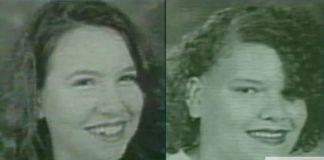
It was a newspaper headline that changed the course of my life. In July 1991, a Newsday article confirmed for me the fear of every gay man: A former lover had tested positive for HIV. “Patients of AIDS Dentist Seek Tests” was the headline. I wasn’t just Dr. Feldman’s patient; I had been his sexual partner. My positive result a few days later catapulted me into a new landscape, unchartered territory, a journey with no road map. I was only 26 years old. My journey continues today. I’m now in my 50s and I am grateful. There are so many others, infected before me and after me, who sprinted from diagnosis to death.
Now, as the coronavirus has spread worldwide, there is an element of déjà vu for those of us who experienced the anxiety of contracting a deadly virus in the early 1980s. At first, it was believed that the virus was primarily a threat to the male homosexual community. But in 1982, Gay Related Immune Deficiency (GRID) was renamed Acquired Immune Deficiency Syndrome (AIDS) as it became apparent that the disease did not discriminate based on sexual preference. So little was known about transmission and treatment when the virus first took hold. As if being gay were not cause enough for discrimination, gay men were also feared and even shunned as potential disease spreaders. I learned not to share my diagnosis, and it became my stigma, my secret, my shame.
I learned early on in my life how to keep secrets. I was a shy, quiet child, bullied at school, painfully aware even as a young boy that I was different. I was lonely and vulnerable and perfect prey for a pedophile. A “trusted” family friend—my mother’s boss, who was a prominent member of our church—was my abuser up until my adolescence. It took all the courage I could muster to find my voice back then, to tell my story. I remember that my parents were dissuaded from filing criminal charges by the police, who were inept and inexperienced in these matters, and by a church that thought the best course of action was simply to pray for all involved. I came to believe that speaking the truth could be painfully unproductive, though not nearly as destructive as suffering in silence.
In the years to come, I would speak the truth again and again, even when it was wielded as a two-edged sword—sometimes pushing people away, sometimes pulling them in. I would tell my family I was gay. I would tell them I had HIV. I am using my voice now to tell others you can survive the worst kind of trauma. Older, long-term survivors of the HIV pandemic have much to teach those currently caught up in the chaos of COVID-19. We have gained knowledge and eradicated fear. We have won access to the medications we need for our survival. We have increased awareness of what it means to be immunocompromised. We have campaigned for science and government to join forces. We loved and accepted ourselves, and now others love and accept us. If you are looking for hope and proof that you can survive a pandemic, I am here. We are here.
What three adjectives best describe you?
Survivor, resilient, determined.
What is your greatest achievement?
Maintaining a positive attitude despite living with the aftermath of much tragedy.
What is your greatest regret?
Not spending more time with people I love who are no longer alive.
What keeps you up at night?
Fears about my health and finances.
If you could change one thing about living with HIV, what would it be?
Improve medications so there are fewer side effects.
What is the best advice you ever received?
Don’t give up.
What person(s) in the HIV/AIDS community do you most admire?
The activists.
What drives you to do what you do?
Survival.
What is your motto?
“Stay in the moment.”
If you had to evacuate your house immediately, what is the one thing you would grab on the way out?
My photographs.
If you could be any animal, what would you be? And why?
A lion—hear me roar!







